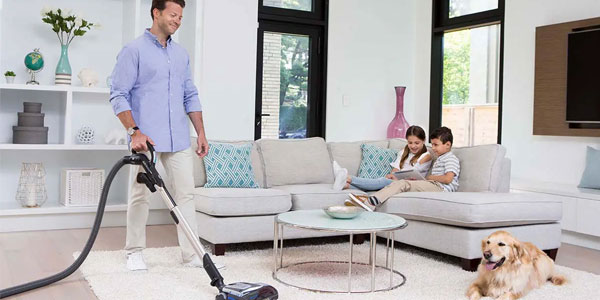Maintaining Your Central Vacuum Systems: Tips and Tricks

Maintaining your central vacuum system is essential to ensure optimal performance, longevity, and clean indoor air quality. Here are some tips and tricks to help you maintain your central vacuum effectively:
1. Regular Cleaning and Maintenance Schedule
- Empty the Dirt Canister: Check and empty the dirt canister or vacuum bag regularly to prevent it from becoming overly full, which can reduce suction power and strain the motor.
- Clean Filters: Depending on your system, clean or replace filters as recommended by the manufacturer. This helps maintain airflow and suction efficiency, especially if your system uses HEPA filters for allergen control.
2. Inspect and Clean Vacuum Inlets
- Remove Obstructions: Periodically check Central Vacuum Systems inlets for any blockages or debris that may hinder suction. Use a vacuum hose or long, narrow brush attachment to clear out any dirt or dust.
- Check Seal and Gaskets: Inspect the seal around each inlet to ensure it forms a tight seal when the hose is connected. Replace any worn-out gaskets to prevent air leaks.
3. Inspect and Clean Vacuum Hoses and Attachments
- Inspect Hoses for Clogs: Regularly check the vacuum hose for clogs or blockages. If necessary, use a broom handle or long, flexible tool to dislodge any debris stuck inside.
- Clean Attachments: Clean brushes, crevice tools, and other attachments regularly to prevent dirt buildup and ensure they effectively pick up debris during cleaning.
4. Check Power Unit and Motor
- Inspect Motor and Brushes: Periodically inspect the central vacuum power unit and motor for any signs of wear or unusual noise. Clean the motor brushes if recommended by the manufacturer.
- Ventilation: Ensure that the central vacuum power unit has adequate ventilation to prevent overheating. Keep the area around the unit clear of obstructions.
5. Professional Maintenance
- Schedule Inspections: Consider scheduling annual inspections or maintenance checks with a professional central vacuum technician. They can identify and address potential issues early on, prolonging the lifespan of your system.
6. Address Odors or Strange Noises Promptly
- Odors: If you notice any unusual odors coming from the central vacuum system, check for clogs, clean the canister or bag, and replace filters if necessary. Persistent odors may indicate a more significant issue that requires professional attention.
- Strange Noises: Investigate any unusual noises during operation, such as grinding or rattling sounds. These could indicate a loose component, worn-out motor brushes, or other mechanical issues that need to be addressed promptly.
7. Educate Household Members
- Proper Use: Educate family members or household occupants on the proper use and care of the central vacuum system. Emphasize the importance of emptying the canister regularly, avoiding vacuuming up large debris, and using appropriate attachments for different surfaces.
8. Maintain Exterior Components
- Exterior Cleaning: Occasionally clean the exterior of the central vacuum unit with a soft cloth and mild detergent to remove dust and dirt buildup. Avoid using harsh chemicals that could damage the finish.
9. Keep Documentation Handy
- Owner’s Manual: Keep the owner’s manual and warranty information in a safe place for reference. Consult the manual for specific maintenance guidelines and troubleshooting tips provided by the manufacturer.
By following these maintenance tips and establishing a regular cleaning schedule, you can ensure that your central vacuum system operates efficiently, prolonging its lifespan and maintaining cleaner indoor air quality for your home. Regular maintenance not only enhances performance but also reduces the likelihood of costly repairs down the road.




